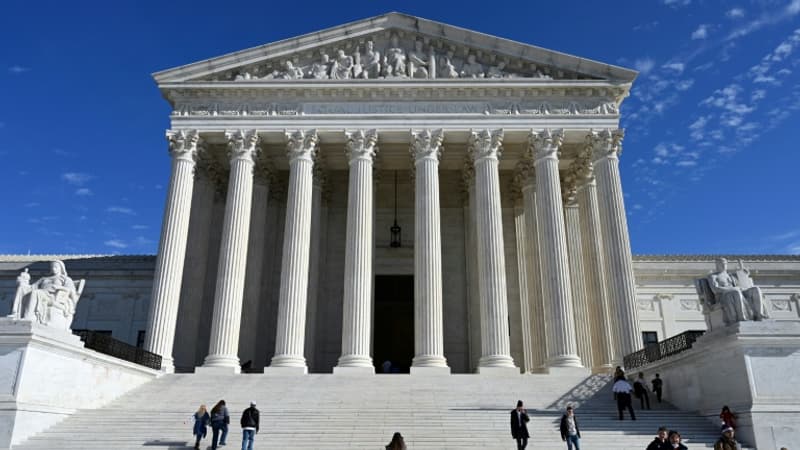The United States Supreme Court with most United States opens its new annual session on Monday, October 6, when justice is a final bulwark against the omnipotence of the presidency of Donald Trump.
Call to decide explosive questions in an Ultra polarized American society, the court faces misunderstandings or even the growing criticisms of public opinion, but now the lowest jurisdictions.
A Supreme Court under tension against Trump’s presidency
In the program of this session is the president’s power to impose prohibitive customs tariffs on imports or revoke managers of independent organizations, particularly in the Central Bank (Federal Reserve).
The nine judges will also rule on the Political-Racial Electoral Division, the participation of transgender people in women’s sports competitions, conversion therapies, the religious rights of a prisoner Rastafari or the port of Armas.
“In the context of this session, there are two separate conflicts,” summarizes Samuel Bray, a law professor at the University of Chicago.
The first brought to the Supreme Court Donald Trump, explains: “In May, it seemed to be many differences in immigration and the rights of people, but at this time the president is chaining the successes in the Supreme Court.”
The second conflict, between the Supreme Court and the lower courts, is reflected in “many more tensions and numerous suspensions or cancellations pronounced by the court,” continues Samuel Bray.
An institution accused of relying on the side of power
From about twenty emergency appeals from the Court from the return to the power of Donald Trump in January, and a record, his administration has really obtained satisfaction in 70% of the cases. The highest US jurisdiction has suspended or raised judicial decisions that restrict the expulsions of immigrants, the dismissals of public officials, the abolition of public financing or the exclusion of transgender people from the army.
“The Court has bent in four to give the green light to the positions of the Trump administration,” deplores the legal director of the influential organization of Civic Rights of ACLU, Cecillia Wang.
Before the return to the White House of Donald Trump, “the Supreme Court had never launched in favor of the Executive Power for the only reason that he wanted to apply his policy immediately,” he said.
“This seems to be the only base on which the Supreme Court suspends from the decisions of the lower jurisdictions against the president,” added Cecillia Wang, seeing a “disturbing” drift.
The three progressive court judges also criticize the conservative majority to grant preferential treatment to the government.
“The other plaintiffs must follow the rules, but this Administration has the Supreme Court in their favorite telephone contacts,” Judge Sonia Sotomayor wrote, to express their disagreement with a decision in July authorizing the expulsion of immigrants to South Sudan, a country in the conflict.
Growing fractures with lower jurisdictions
Tensions also appear between the patio and the lower jurisdictions. One of the conservative judges, Neil Gorsuch, has launched several first instance magistrates, to have deliberately ignored the orientations established by the Supreme Court.
“Sometimes they can disagree with the decisions of this court, but they are never free to challenge them,” he wrote in August in a sentence, believing that even the decisions pronounced in the emergency made jurisprudence.
But several first instance judges denounce the sibyline nature of these decisions taken in emergency, sometimes not motivated.
“The recent emergency decisions on the suppression of subsidies have not been models of clarity,” said Neil Gorsuch Allison Burroughs to Neil Gorsuch, who ordered in September the cancellation of the freezing of about 2.6 billion government funds at Harvard University.
The first instance judges “must fight with the existing jurisprudence and the provisional orientations of the Supreme Court that, in addition to the previous jurisprudence, without any explanation or consensus,” he argues.
Cecillia Wang, of ACLU, fears an accelerated erosion of the Supreme Court credit for “the accumulation of unreasonable decisions”, citing the authorization of the descents of the immigration police in Los Angeles denounced as facies controls. In fact, the judicial rate of the Court sank to a lower historical minimum, with 39 %, in a July Gallup survey, with an unprecedented difference of 64 points among the Republicans (75 %of favorable opinions) and Democrats (11 %).
Source: BFM TV


